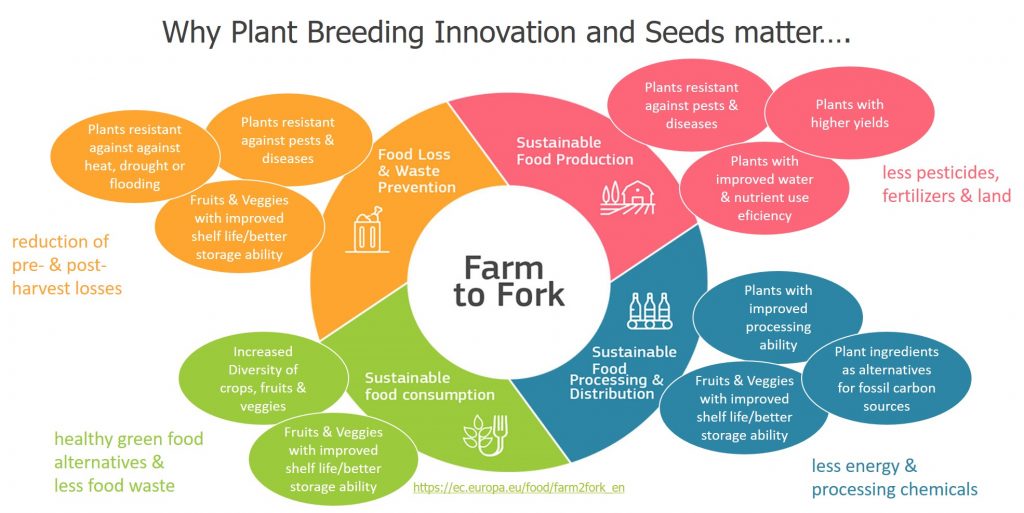On 25 July 2018 the European Court of Justice (ECJ) published its ruling on mutagenesis breeding including targeted genome editing techniques. This ruling put new forms of mutagenesis breeding under the strict rules and requirements for GMOs and with that factually made the tools unavailable for European plant breeding and agriculture.
We now have an ambitious Farm to Fork Strategy of the new European Commission on the table, that requires EU farmers to operate in a more sustainable way by e.g. using less pesticides and fertilizers. Still we do not see any commitment of the EU legislator to facilitate farmers access to respective innovations helping them to meet these ambitious goals.
Seed more than ever is the key input for farmers in Europe and worldwide. It is estimated that more than 50% of all productivity gains are due to improved varieties resulting from sophisticated plant breeding; it is also estimated that this figure will rise to up to 80% in the coming years, not least due to growing restrictions on the use of crop protection products, fertilizers and other inputs.
“As Euroseeds we firmly believe in the role of innovation and technologies in agriculture as the way to provide a more sustainable food production” says Garlich von Essen, Secretary General of Euroseeds. “Companies active in the plant breeding and seed production are amongst the most innovative in Europe to meet the challenging and ever-evolving needs of farmers and the rest of the agri-food chain, including consumer preferences and policy objectives”, he adds.
New plant varieties are increasing and securing crop yields while reducing the use of plant protection products, fertilizers and other inputs; improving plant qualities. Prolonging the shelf life of fresh produce supports healthier diets and addresses food waste. In short: plant breeding innovation is key to achieve the goals of a more sustainable and productive agriculture that simultaneously protects and preserves scarce natural resources.

“Euroseeds therefore is convinced that in order to be successful, an EU Farm to Fork Strategy must place plant breeding, related scientific advances and technological innovations at the very core of its considerations and consequent supportive measures”, von Essen concludes.